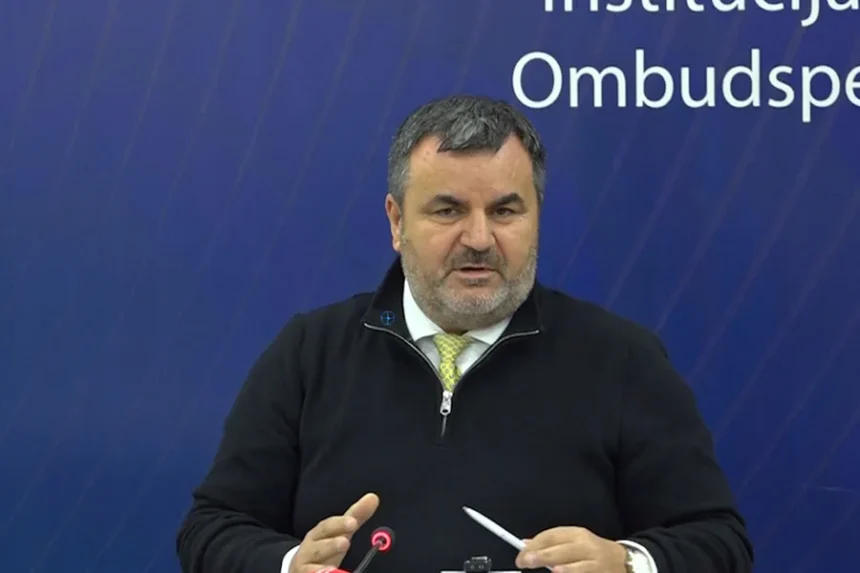Kosovo’s Ombudsperson, Naim Qelaj, has expressed serious concerns regarding the implementation of Kosovo’s legislation in the procedures conducted by the Specialist Chambers, particularly in relation to the protection of victims and protected witnesses.
In a press conference held today following his visit to the Specialist Chambers in The Hague, Qelaj sharply criticized the court for its restrictions on visits to detainees.
He described significant difficulties in communicating with the individuals held in custody, emphasizing that his interviews with Hashim Thaçi, Kadri Veseli, Jakup Krasniqi, and Rexhep Selimi were conducted under conditions that, according to him, seriously violate the independence and legal rights of the Ombudsperson.
“We interviewed Mr. Thaçi, Veseli, Krasniqi, and Selimi. What I must emphasize is that the entire visit and communication with these individuals were fully monitored. I was unable to take notes, and the overall conditions, in my opinion, severely undermine the independence and the constitutional mandate of the Ombudsperson to have unrestricted communication with persons in detention,” Qelaj stated.
“This is the first time in my five-year mandate that I have been forced to conduct an interview with a detainee under such restrictions. I believe this contradicts all rules set by the Council of Europe, the European Court of Human Rights, and the European Committee for the Prevention of Torture, which require free communication.”
Qelaj also noted that court procedures show a clear lack of accountability, something he said damages public trust and the integrity of the institution. He stated that this lack of transparency was evident in meetings held with various stakeholders during the visit.
“What we observed during our visit is that the entire process at this court is accompanied by a lack of accountability and transparency. This concern was raised directly with the parties we met. Such deficiencies undermine democratic oversight and increase public uncertainty, ultimately damaging the court’s integrity and public trust,” he added.
Furthermore, Qelaj highlighted issues related to the internal rights of detainees, stating that his office observed restrictions on contact schedules and family visits—all of which are fully monitored. He argued that these measures violate the right to privacy and are imposed without any defined time limit.
“We noticed restrictions on detainees’ rights inside the detention facilities, including limitations on communication hours, family visits, and the complete monitoring of those visits—violating the principles of privacy and family life. What concerns us even more is that these restrictive measures have been imposed for an unspecified period. We will seek explanations from the court and relevant authorities,” Qelaj said.
The former leaders of the Kosovo Liberation Army—Hashim Thaçi, Kadri Veseli, Jakup Krasniqi, and Rexhep Selimi—have been held in detention in The Hague since November 2020. They face charges of war crimes but have pleaded not guilty to all counts. Their trial began on April 3, 2023.







